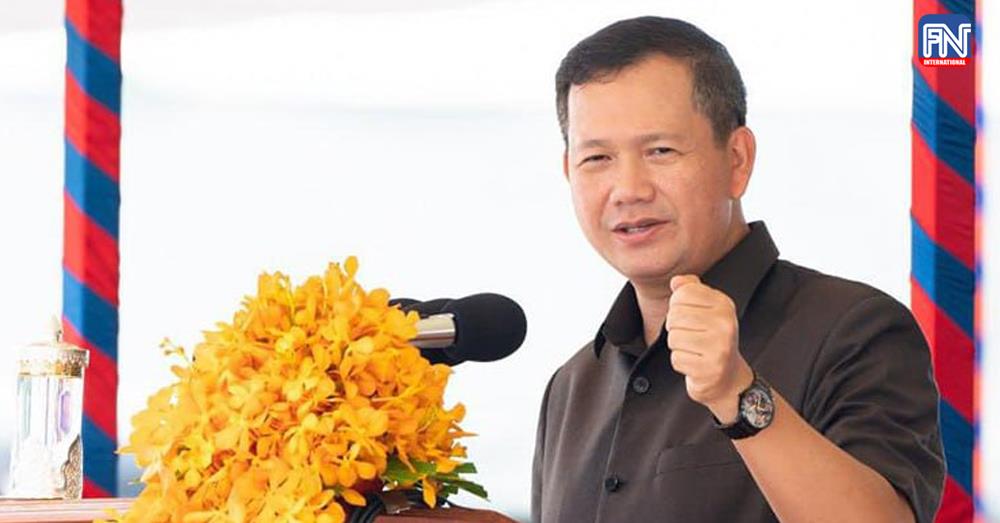Phnom Penh (FN), Sep. 25 – The world is watching as Cambodia navigates the complex web of international affairs. In an era marked by trust deficit, fast-evolving global power shift and transforming geopolitical and geo-economic landscapes, Cambodia finds itself compelled to take an active and forward-looking stance in its foreign affairs—an approach that seeks friendship with all nations while harboring no adversaries.
The Asia Pacific region is at an inflection point- facing an arc of geopolitical instability. Regional security flashpoints such as the tensions on the Korean Peninsula, Taiwan Straits, East and South China Seas, and Myanmar crisis continue to threaten regional peace and stability. Against this backdrop, Cambodia must be prepared to face different scenarios, while taking a leadership role in international crisis prevention and management by prioritizing diplomacy, dialogue and international law.
It has been slightly more than a month since prime minister Hun Manet assumed office. In his inaugural month, Hun Manet embarked on a whirlwind diplomatic journey, which included attending the ASEAN Summit and related Summits in Indonesia, making his first official visit to China, where he also participated in the China-ASEAN Expo, and addressing the 78th UNGA in New York.
These high-level engagements provided him with invaluable opportunities to raise the Cambodian flag and connect with a diverse array of global stakeholders, ranging from political leaders and chief diplomats to business leaders and thought leaders.
The key question that arises is what we can discern from prime minister Hun Manet’s foreign policy doctrine.
Independence
One of the central tenets of Hun Manet’s foreign policy doctrine appears to be a commitment to an independent and non-aligned stance. This approach underscores Cambodia’s determination to steer its own course in international affairs, free from external pressures or alignments. In an era where geopolitical rivalries loom large, this emphasis on autonomy is a notable cornerstone of Cambodia’s foreign policy.
Addressing the 78th United Nations General Assembly, he reaffirmed Cambodia’s consistent and firm stand to neither host foreign military bases on its soil nor allow its territory to be used against a third country. This non-alignment stance is deeply rooted in Cambodia’s history and its struggle for self-determination.
Throughout its tumultuous past, Cambodia has strived to maintain a position of neutrality in international conflicts, seeking to avoid entanglements in the disputes of others while adhering to international law. This policy serves as a foundation for peaceful coexistence with neighboring nations.
Multilateralism
Another defining feature of Hun Manet’s vision is the unwavering commitment to multilateralism. The 21st century has witnessed the rise of complex global challenges that transcend national borders. From climate crisis to the pandemic crisis, these issues necessitate collaborative, cross-border solutions. Unilateralism and block politics are ill-suited to address these complex and interlinked challenges.
Multilateralism is fundamentally rooted in the concept of shared responsibility and collective action. It acknowledges that global challenges require coordinated efforts, shared responsibilities, and pooled resources from multiple nations.
ASEAN remains the cornerstone of Cambodia’s foreign policy. It reflects a strategic vision that prioritizes regional stability, prosperity, and cooperation. Embracing ASEAN-led initiatives like RCEP and AOIP, Cambodia aims to leverage regional partnerships and frameworks to enhance its economic growth, diplomatic engagement, and resilience in the face of emerging challenges. By doing so, Cambodia not only strengthens its regional standing but also contributes to the broader mission of ASEAN in building a resilient, sustainable, and inclusive community.
International Law
Lastly, Hun Manet’s foreign policy doctrine firmly aligns with the concept of a rules-based international order- referring to a system of global governance in which international relations and interactions are guided by a set of agreed rules, norms, principles, and institutions. These rules are established to promote peaceful coexistence, cooperation, and peaceful settlement of disputes.
By adhering to the established international norms and standards, Cambodia envisions to be a responsible, reliable, and principled member of the international community that is genuinely committed to upholding the principles enshrined in the United Nations Charter.
Embracing a rules-based order also entails strengthening and supporting international institutions such as the United Nations and ASEAN. Cambodia’s active participation in these forums reinforces its political will and leadership to address cross-border challenges.
Cambodia First
At the heart of foreign policy lies core national interests, which include economic prosperity, security, stability, and the well-being of the people. Notably, economics determines politics. Cambodia seeks economic growth, access to markets, attract foreign investments, and reach favorable trade agreements to enhance their prosperity and the standard of living for the people so that Cambodia could realize its vision to become a high-income country by 2050.
Crafting foreign policy is an intricate and multifaceted undertaking that demands a deep comprehension of national and international megatrends, core national interests, and the intricate interplay and delicate balance among these interests. There is a need to enhance the capacity to analyze evolving international structural dynamics and anticipate diverse potential scenarios, and the competence to navigate through challenges which ultimately can develop innovative solutions and breakthroughs.
As prime minister Hun Manet is thriving to navigate Cambodia in an increasingly complex, uncertain, and volatile world, it will be intriguing to observe how these three key strategic principles – independence, multilateralism, and a rules-based international order – shape Cambodia’s foreign policy direction. These principles are not just a roadmap for Cambodia’s international role but also a testament to its commitment to being a responsible and respected member of the international community.
Chheang Vannarith is president of the Asian Vision Institute, an independent think tank based in Phnom Penh.
=FRESH NEWS
